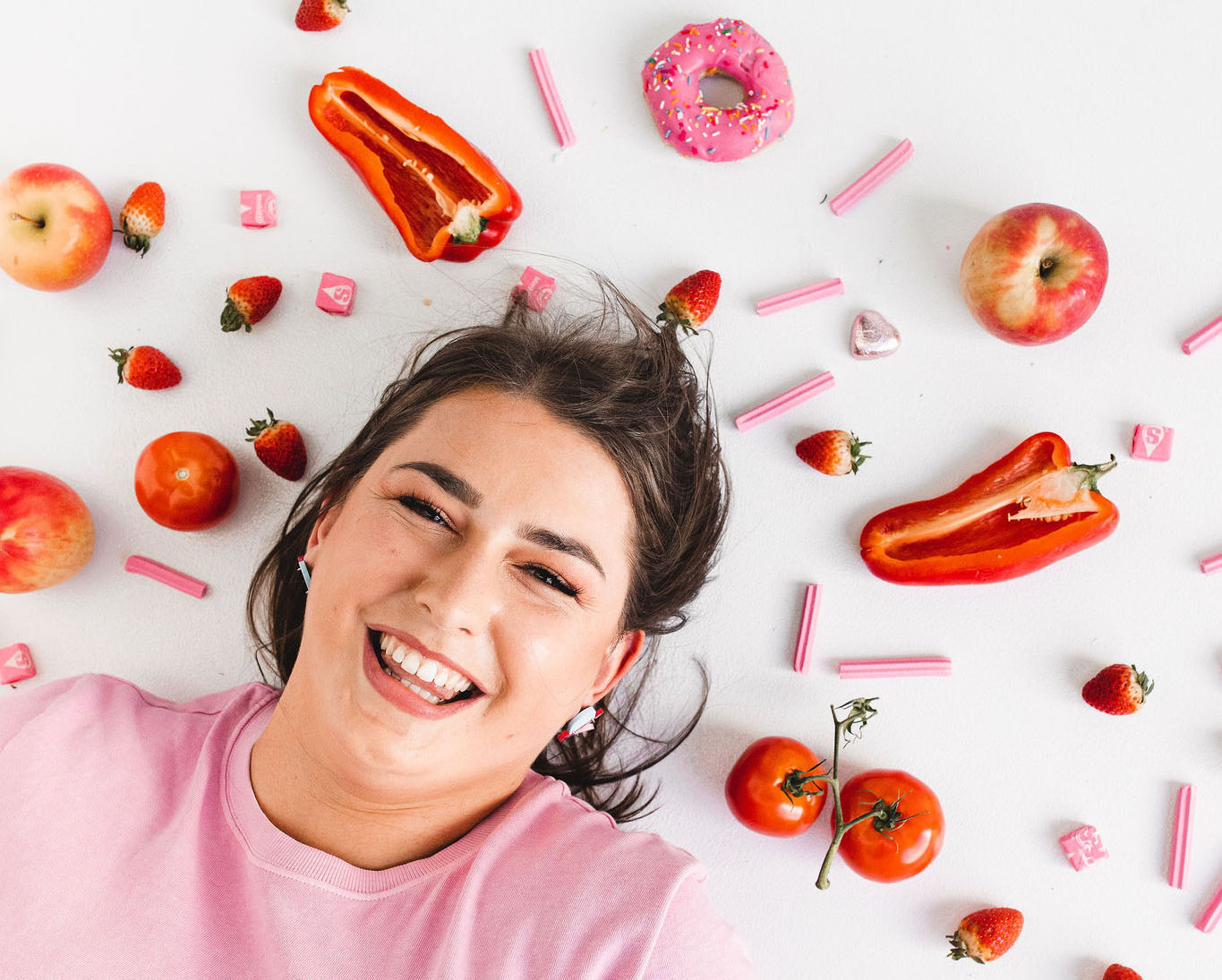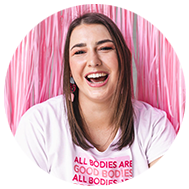

Intuitive eating is an evidence-based, weight inclusive model that honours both mental and physical health. It rejects the diet mentality and brings eating back to a form of self-care by incorporating instinct, emotion and rational thought into the eating process.
It was created by two dietitians, Evelyn Tribole and Elyse Resch, back in 1995, but has been brought into the spotlight in recent years now that people have started to discover that dieting is NOT the answer.
Intuitive eating is not a diet. The biggest difference that you'll find is that, unlike diets, intuitive eating has no rules or strict guidelines to follow. There are no lists of what you can and can't eat. There are no numbers to track. There are no 'good' and 'bad' foods. The basic premise is about listening to your body: eating when you're hungry, and stopping when you're full.
However, intuitive eating also recognises that there are other reasons to eat besides physical hunger, and you're not discouraged from eating at these times. For example, we also eat for pleasure and enjoyment. We eat for convenience, such as if you're not hungry now, but you're going to work for 4 hours so you eat now to make sure you won't get hungry at work. We eat for social connection, like enjoying a piece of cake for your co-worker's birthday.
Improved psychological health: We've all felt the frustration, disappointment and shame over 'failing' at a diet, which can have significant negative effects on our mental health over a prolonged period of time. Studies have shown that people who participate in intuitive eating studies improved their body image, self-esteem and overall quality of life, while also showing lower instances of anxiety and depression.
It teaches you to respect your body: Following on from the last point, one of the principles of intuitive eating is respecting your body, and recognising that it is capable and amazing just as it is. This contributes to improved body image.
It's EASY and stress-free: Intuitive eating means no counting calories, tracking macros, lists of foods you're not allowed to eat, weighing food or anything else that diets have taught you are normal. You get to throw the rule book out the window and do what feels right for you.
It encourages you to 'discover the satisfaction factor': Food should be enjoyable, and eating should be a pleasurable experience. Intuitive eating encourages you to eat the foods that you enjoy, and to discover what you actually like. You might find that your tastes change once you have allowed yourself full freedom to eat all kinds of foods (I know that I did!).
It will help you to lose weight: Intuitive eating is not about losing weight. It rejects the diet mentality and does not encourage intentional weight loss. It can help you to stabilise your weight, which may be a number lower, higher or exactly where you are now. Once you are eating intuitively, your body will settle at the weight that it is meant to be.
It's not as healthy as dieting: When you've spent your whole life being told that certain foods are 'bad', it can initially feel counter-intuitive to your health to allow them. Once you've learnt about the negative effects of dieting, you realise that intuitive eating is actually far better for us and has more positive health effects than diets do.

One of the first steps is to learn to distinguish the difference between physical and emotional hunger- are you eating because you're actually hungry, or to satisfy an emotional response? In the beginning, try to discover other ways to deal with your feelings rather than eating. It's okay to comfort ourselves with food sometimes, but we should have other coping strategies to fall back on too.
Next, learn to listen to your hunger and fullness cues. This can be difficult if you've been eating according to set rules for a long time, and some people may find that their cues aren't trustworthy to begin with if they have a history of disordered eating. You can start by rating your hunger on a scale of 1-10, and try to keep yourself from getting to either extreme. This rating system is not something that you need to continue forever, but it can be a useful tool at the beginning of your intuitive eating journey.
Finally, one of the best ways to start intuitive eating is to get help with it! I recommend reading the book 'Intuitive Eating' by Evelyn Tribole and Elyse Resch- I'm not exaggerating when I say that it was life-changing for me.
If you're not into reading and would prefer someone to walk you through it and provide continued support, book in for some coaching sessions and let me help you. You can book a free mini coaching session to see if we're a good fit here.

I'll transform your life through food and body freedom, so that your days are full of fun and pleasure.
You can love your body, feel confident, create sustainable healthy habits and become your best self without diets and their BS!